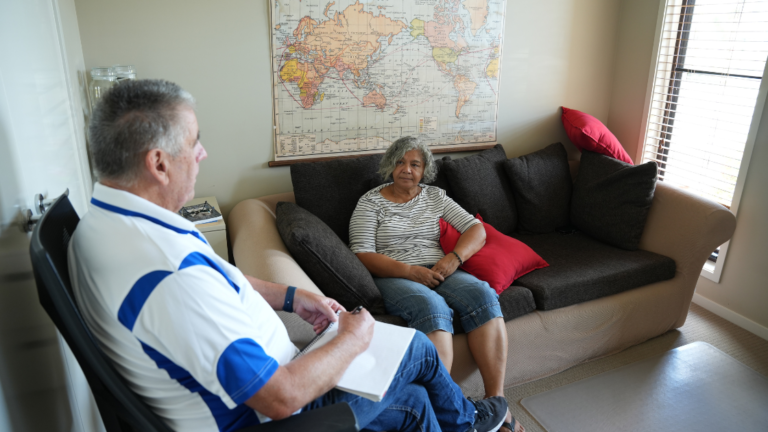In the quest for personal growth and healing, it’s essential to have an open mind and explore a range of options. Each individual’s journey is unique, and what works for one person may not be as effective for another.
This diversity in healing practices reflects the complexity and richness of the human experience. In this blog, we’ll delve into the nuances of each modality, examining their methodologies, benefits, and how they differ from or complement hypnotherapy.
As an experienced hypnotherapist, I’ve had the privilege of witnessing the profound impact hypnotherapy can have. But I’m also aware that it’s one of many paths to wellness. In this blog, we’ll explore five alternative healing techniques and compare them with hypnotherapy, helping you find the best fit for your unique needs.
If you’ve been on a journey toward healing and self-improvement, you’ve likely encountered various modalities along the way. As an expert hypnotherapist with over 40 years of experience, I’ve seen firsthand how transformative hypnotherapy can be. But I also understand that it’s just one of many paths to wellness.
In this blog, we’ll explore five alternative healing techniques, comparing them with hypnotherapy to help you find the best fit for your unique needs.
1. Acupuncture: Ancient Wisdom for Modern Healing
Acupuncture, a cornerstone of traditional Chinese medicine, dates back thousands of years. This ancient practice involves the insertion of fine needles into specific points on the body, known as acupoints.
The underlying principle is the balance of the body’s energy flow or Qi. It’s widely recognized for its effectiveness in pain relief, stress management, and a range of other health issues.
Comparison with Hypnotherapy: Acupuncture and hypnotherapy offer different approaches to healing. While acupuncture targets the body’s energy pathways to promote physical healing and relaxation, hypnotherapy focuses on the power of the mind.
Through suggestions and visualization, hypnotherapy can alter subconscious patterns, leading to behavioural and emotional changes. When combined, these two modalities can offer a comprehensive approach to stress and anxiety management.
2. Yoga and Meditation: Uniting Body and Mind
Yoga, with its origins in ancient India, is more than just physical exercise. It’s a holistic practice that unites body, mind, and spirit. Yoga encompasses various styles, each combining physical postures (asanas), breathing techniques (pranayama), and meditation.
Meditation, a core element of yoga, involves practices to focus and quiet the mind, achieving a state of mental clarity and emotional calmness.
Comparison with Hypnotherapy: Yoga/meditation and hypnotherapy share common goals of relaxation and stress reduction. However, hypnotherapy offers a more direct approach to addressing specific psychological issues.
By tapping into the subconscious, hypnotherapy can uncover and modify deep-rooted patterns, providing targeted solutions to behavioural and emotional challenges.
3. Reiki: Channeling Universal Energy for Healing
Reiki, developed in Japan in the early 20th century, is based on the concept of universal life force energy. Practitioners use a technique called palm healing or hands-on healing to transfer this energy to the recipient, promoting relaxation, stress reduction, and healing. Reiki is often described as a complementary therapy, supporting overall wellness and energy balance.
Comparison with Hypnotherapy: Reiki and hypnotherapy address wellness from different angles. Reiki focuses on the flow and balance of energy within the body, providing a gentle, non-invasive form of healing.
Hypnotherapy, conversely, works directly with the subconscious mind, targeting specific psychological conditions and patterns. Used together, they can offer a well-rounded approach to health and well-being.
4. Cognitive Behavioral Therapy: Transforming Thoughts and Behaviors
Cognitive Behavioral Therapy (CBT) is a widely used psychotherapeutic approach that addresses dysfunctional emotions, behaviours, and thoughts.
CBT involves identifying negative thought patterns and challenging them, replacing them with healthier, more constructive alternatives.
It’s an evidence-based approach, effective in treating a variety of mental health issues, including anxiety, depression, and phobias.
Comparison with Hypnotherapy: While both CBT and hypnotherapy are effective in treating psychological issues, they operate on different levels. CBT is a structured, problem-focused approach, dealing primarily with conscious thoughts and behaviors.
Hypnotherapy, in contrast, accesses the deeper subconscious mind, allowing for the exploration and resolution of underlying issues. Together, they can offer a comprehensive approach to mental wellness.
5. Aromatherapy: The Healing Power of Scent
Aromatherapy utilizes essential oils extracted from plants to promote physical and emotional health. These oils can be inhaled, applied to the skin, or used in massage.
Aromatherapy is believed to stimulate the olfactory system, affecting the brain and influencing mood, emotions, and physical health.
Comparison with Hypnotherapy: Aromatherapy offers a sensory-based approach to wellness, primarily affecting mood and creating a conducive environment for relaxation and healing.
Hypnotherapy, however, provides a more interactive and proactive approach, addressing specific psychological issues and behaviour patterns. When used in conjunction with hypnotherapy, aromatherapy can enhance the therapeutic environment, aiding in relaxation and focus.
Conclusion: Choosing Your Healing Path
Each healing modality we’ve explored offers unique benefits and can be effective in different ways.
Hypnotherapy, with its ability to directly influence the subconscious mind, stands out for creating profound and lasting changes. It’s particularly effective for those seeking a deeper level of transformation, especially after exploring other modalities without finding the desired results.
If you’re intrigued by the potential of hypnotherapy, I encourage you to explore it further. With a personalized approach, we can tap into the power of your subconscious to overcome challenges and achieve your goals.
Remember, your wellness journey is uniquely yours. The right modality is one that resonates with you and meets your individual needs.
Let’s embark on this journey together, and discover the path that leads you to your best self.




